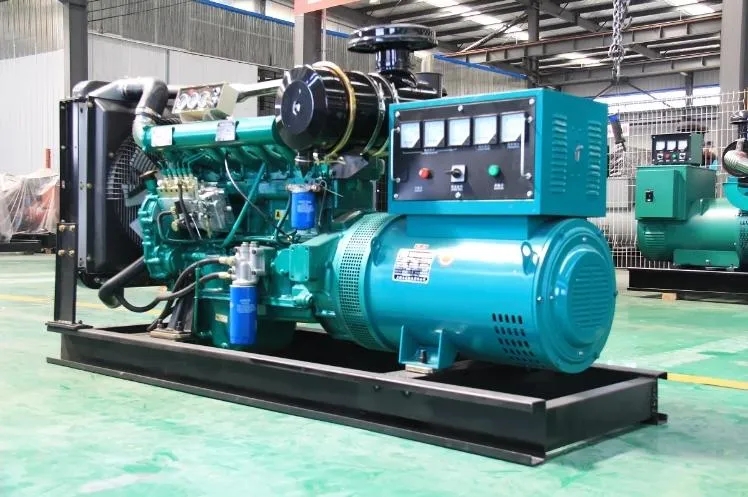Introduction
In remote locations where access to the power grid is limited or non-existent, diesel generators play a crucial role in providing reliable electricity. These generators are commonly used in a variety of settings, including off-grid communities, mining operations, construction sites, and emergency response situations. In this article, we will explore the importance of diesel generators in remote locations, their benefits and drawbacks, as well as best practices for their installation and maintenance.
Importance of Diesel Generators in Remote Locations
Remote locations, by definition, are areas that are far removed from urban centers and may lack the necessary infrastructure to support electricity access. In such environments, diesel generators serve as a lifeline, providing the power needed to run essential equipment, machinery, and appliances. They are often the most practical and reliable solution for meeting the energy needs of these isolated communities and industries.
One of the key advantages of diesel generators is their ability to operate continuously for long periods of time. This makes them ideal for remote locations where power outages are common or where access to fuel sources may be limited. Diesel generators are also known for their durability and reliability, making them well-suited for harsh environments with extreme weather conditions.
Benefits of Diesel Generators in Remote Locations
1. Reliability: Diesel generators are known for their reliability and long lifespan, making them a dependable source of power in remote locations where access to maintenance and repair services may be limited.
2. Fuel Efficiency: Diesel generators are more fuel-efficient than gasoline generators, providing cost savings over the long term, especially in areas where fuel may be scarce or expensive.
3. High Power Output: Diesel generators are capable of producing a high amount of power, making them suitable for running heavy-duty equipment and machinery in remote locations.
4. Easy to Maintain: Diesel generators are relatively easy to maintain, with simple maintenance procedures that can be carried out by operators with basic technical skills.
5. https://www.lkpowerplant.com/product/quick-delivery-emergency-standby-power-400kw-silent-type-diesel-generator-set-for-peru/ : Diesel generators can be used in a wide range of applications, from powering small households in off-grid communities to providing backup power in critical infrastructure such as hospitals and telecommunications facilities.
Drawbacks of Diesel Generators in Remote Locations
While diesel generators offer numerous benefits, they also come with some drawbacks that need to be considered when choosing a power source for remote locations.
1. Environmental Impact: Diesel generators produce emissions that contribute to air pollution and climate change. In remote locations with fragile ecosystems, this can have a significant impact on local wildlife and vegetation.
2. Noise Pollution: Diesel generators can be noisy, especially when operating at full capacity. In remote locations where peace and quiet are valued, this can be a major drawback.
3. Fuel Storage: Diesel fuel needs to be stored on-site, which can pose safety risks in remote locations where access to emergency services may be limited.
4. Maintenance Requirements: While diesel generators are generally easy to maintain, they still require regular servicing and upkeep to ensure optimal performance. In remote locations, finding qualified technicians to carry out this work can be a challenge.
Best Practices for Installing and Maintaining Diesel Generators in Remote Locations
1. Site Selection: When installing a diesel generator in a remote location, careful consideration should be given to the site's accessibility, proximity to fuel sources, and environmental impact. It is important to choose a location that minimizes noise pollution and air pollution while still allowing for easy maintenance and refueling.
2. Fuel Management: Proper fuel management is essential to ensure the reliable operation of a diesel generator in a remote location. This includes regular fuel testing, monitoring fuel levels, and ensuring that fuel storage tanks are properly maintained and secured.
3. Regular Maintenance: Diesel generators require regular maintenance to ensure they operate efficiently and reliably. This includes changing filters, checking oil levels, inspecting electrical connections, and testing the generator under load conditions.

4. Training and Safety: Operators of diesel generators in remote locations should receive proper training on how to operate the equipment safely and efficiently. They should also be familiar with emergency procedures in case of a malfunction or outage.
5. Monitoring and Remote Control: In some cases, remote monitoring and control systems can be installed to allow operators to monitor the performance of the diesel generator from a central location. This can help to identify potential issues before they escalate and ensure that the generator is operating at optimal efficiency.
Conclusion
Diesel generators play a vital role in powering remote locations where access to the power grid is limited or non-existent. Despite their drawbacks, diesel generators offer numerous benefits, including reliability, fuel efficiency, and high power output. By following best practices for installation and maintenance, operators can ensure that their diesel generators operate efficiently and reliably in even the most challenging environments.
